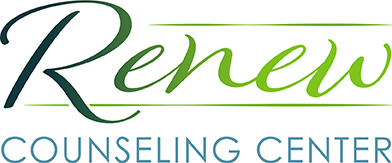Personality Disorders
A, personality disorder is a type of mental illness in which you have trouble perceiving and relating to situations and to people — including yourself. There are many specific types of personality disorders. In general, having a personality disorder means you have a rigid and unhealthy pattern of thinking and behaving no matter what the situation and can lead to significant problems and limitations in relationships, social encounters, work and school. In some cases, you may not realize that you have a personality disorder because your way of thinking and behaving seems natural to you, and you may blame others for the challenges you face. Some general symptoms of a personality disorder include frequent mood swings, stormy relationships, social isolation, angry outbursts, suspicion and mistrust of others, difficulty making friends, a need for instant gratification, poor impulse control, and/or alcohol or substance abuse.
If you have any signs or symptoms of a personality disorder, see your doctor, mental health provider, or one of the Counselors at Renew Counseling Center. Untreated, personality disorders can cause significant problems in your life, and they may get worse without treatment.
Personality disorders are typically grouped into three clusters based on similar characteristics and symptoms. While this list is not conclusive or exhaustive, and it is important to have a full evaluation performed by a qualified professional, some common characteristics are as follows:
Cluster A – Personality disorders characterized by odd, eccentric thinking or behavior.
- Paranoid personality disorder – Distrust and are often suspicious of others, believe that others are trying to harm you, emotionally detached in relationship, and hostile towards others at times.
- Schizoid personality disorder – Lack of interest in social relationships, limited range of emotional expression, unable to pick up normal social cues, appear dull or indifferent to others.

- Schizotypal personality disorder – Peculiar dress, thinking, beliefs or behavior, perceptual alterations, such as those affecting touch, discomfort in close relationships, flat emotions or inappropriate emotional responses, indifferent to others, “magical thinking” (believing you can influence people and events with your thoughts), and believing that messages are hidden for you in public speeches or displays.
Cluster B – Personality disorders characterized by dramatic, overly emotional thinking or behavior.
- Antisocial personality disorder – Disregard for others, persistent lying or stealing, recurring difficulties with the law, repeatedly violating the rights of others, aggressive, often violent behavior, disregard for the safety of self or others.
- Borderline personality disorder – Impulsive and risky behavior, volatile relationships, unstable mood, suicidal behavior, fear of being alone.
- Histrionic personality disorder – Constantly seeks attention from others, excessively emotional, extreme sensitivity to others’ approval, unstable mood, excessive concern with physical appearance.
- Narcissistic personality disorder – Believing that you’re better than others, fantasizing about power, success and attractiveness, exaggerating personal achievements or talents, expecting constant praise and admiration, fails to recognize other people’s emotions and feelings.
Cluster C personality disorders – Personality disorders characterized by anxious, fearful thinking or behavior.
- Avoidant personality disorder – Hypersensitivity to criticism or rejection, Feels inadequate, socially isolating, extreme shyness in social situations, timidity.
- Dependent personality disorder – Excessive dependence on others, submissiveness toward others, strong desire to be taken care of by others, tolerance of poor or abusive treatment, urgent need to start a new relationship when one has ended.
- Obsessive-compulsive personality disorder – Preoccupation with orderliness and rules, extreme perfectionism, desire to be in control of situations, inability to discard broken or worthless objects, inflexibility (This should not to be confused with obsessive-compulsive disorder, a type of anxiety disorder.)
Call (602) 633-4032 to get in touch with the staff at Renew Counseling Center.
